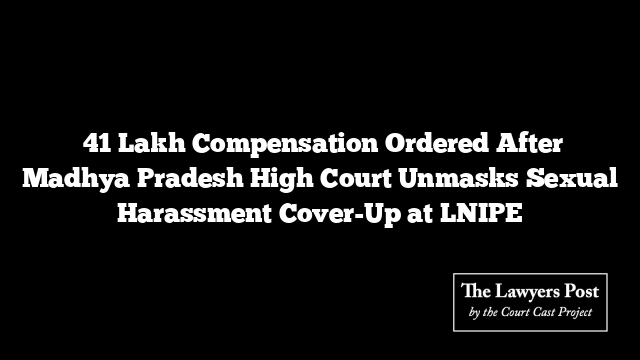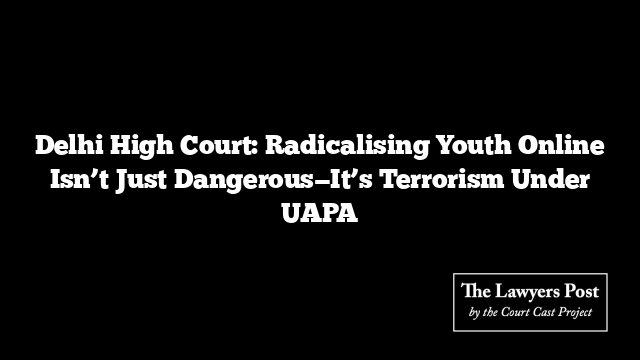In a stern rebuke to institutional apathy and personal misconduct, the Madhya Pradesh High Court has ordered Dilip Kumar Dureha, former Vice-Chancellor of the Lakshmibai National Institute of Physical Education (LNIPE), to pay ₹35 lakh in compensation to a yoga instructor he was found to have sexually harassed. The Court further directed LNIPE and the State to jointly pay an additional ₹6 lakh, citing failure to protect the victim and inexcusable delays in registering her complaint.
Justice Milind Ramesh Phadke, presiding over the matter, leaned heavily on the findings of the Internal Complaints Committee (ICC), which had—five years earlier—confirmed that Dureha had sexually harassed the woman. Among the allegations: unsolicited touching, demands for sexual favours, and calling female staff to his room late at night. The ICC’s findings stood uncontested; Dureha had chosen not to challenge them, and the Court treated the report as conclusive.
“Respondent No.6 is directed to pay compensation to the tune of ₹35 lakhs towards loss of salary for two years, pain and suffering, loss of reputation and emotional distress forthwith,” the Court declared, holding Dureha personally accountable for the harm inflicted.
But the Court’s wrath wasn’t reserved for the former VC alone.
The institute, a Central Government-run entity, was found to have completely failed in creating a safe work environment. Justice Phadke noted that the administration had allowed itself to be “controlled by a person not fit to remain in service of any nature.” For this institutional lapse, LNIPE was ordered to pay ₹1 lakh to the complainant.
The police, too, came under fire. Despite a formal complaint being filed, no FIR was registered for three years — and that only after intervention from the Supreme Court. The High Court criticized the inaction as deliberate indifference and directed the State to pay ₹5 lakh in compensation.
The woman had approached the Court not just for redress, but to demand a workplace where basic dignity and safety weren’t optional. Her legal team sought accountability from every quarter — the individual, the institution, and the State apparatus.
LNIPE argued it could take no action since Dureha had moved on to Banaras Hindu University. The Central government, meanwhile, claimed it had informed BHU about the allegations. The Court, however, seemed unimpressed by this bureaucratic buck-passing.
With this judgment, the Madhya Pradesh High Court has sent a clear message: silence, delay, and deflection in the face of sexual harassment will cost dearly — not just reputationally, but financially and institutionally.





